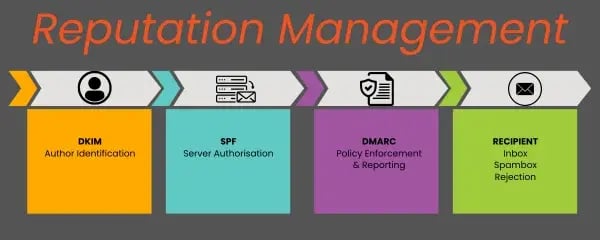
The Hidden Dangers of DIY Email Reputation Management
DIY email reputation management seems simple - a few DNS entries and you've the "it complies" box goes green. This approach puts your organisation at risk. Without the right tools for RUA (Reporting URI for Aggregate) processing, you open the door to security threats.
Here’s why you should think twice before going it alone.
Why DIY Email Security Falls Short
Most organisations want to save money (yep, even me!) and keep control. But managing DMARC and RUA reports in-house is not as easy as it looks. These reports are complex (they are designed for machine, not human, processing). They show who is sending emails on your behalf—both good and bad actors—and technical performance meta-data. Processing them needs special systems, skills and protections.
Key risks of DIY:
- Vulnerable to attacks: Many DIY setups miss critical checks. Attackers can flood your inbox with fake reports (DOS attack) or use your system to attack others (horizontal movement).
- Overwhelmed systems: Without limits, your email servers can (and will) be swamped by too many reports (the email address for the RUA setting is published in full view). This can slow down or even stop your business emails.
- Missed threats: DIY tools often lack real-time monitoring - RUA reports contain valuable information that can indicate an imminent threat. Without the correct tools and monitoring, you may not spot suspicious activity until it’s too late.
- Compliance failures: If you work with sensitive data, poor email security can lead to legal trouble and loss of trust.
The Real-World Impact
-
Healthcare and care providers face more email attacks than any other sector. In 2024, 180 organisations suffered notifiable breaches traced to preventable email attacks. Over 30% had weak (or no) DMARC records in place.
-
Professional services risk losing client trust and money. Poor email reputation can cost over $15,000 per million emails sent.
-
Amplification attacks are on the rise. Attackers exploit weak RUA processing to overload systems and hide their tracks.
Why Professional Solutions Work
Professional email security services offer:
- Robust infrastructure: They handle large volumes of reports without breaking a sweat.
- Expert monitoring: Security teams watch for threats 24/7 and act fast.
- Scalable systems: As your business grows, your email security keeps up.
- Better deliverability: Your emails reach inboxes, not spam folders.
What Should You Do Next?
The following are key for all Organisations using email in any business process:
- Choose a trusted provider for DMARC and RUA processing.
- Avoid free or DIY tools that lack support.
- Ask for regular security reports.
Where you have multiple email domains, strict regulatory requirements and a larger number of employees additional steps are necessary:
- Set clear email security policies.
- Train staff to spot phishing and suspicious emails.
- Invest in enterprise-grade filtering.
- Build an internal security team to work with your provider.
- Audit your email security regularly.
Take Action Now
DIY email reputation management is risky. The cost of a breach is far higher than the price of professional protection. Secure your email, protect your data, and keep your business running smoothly.


